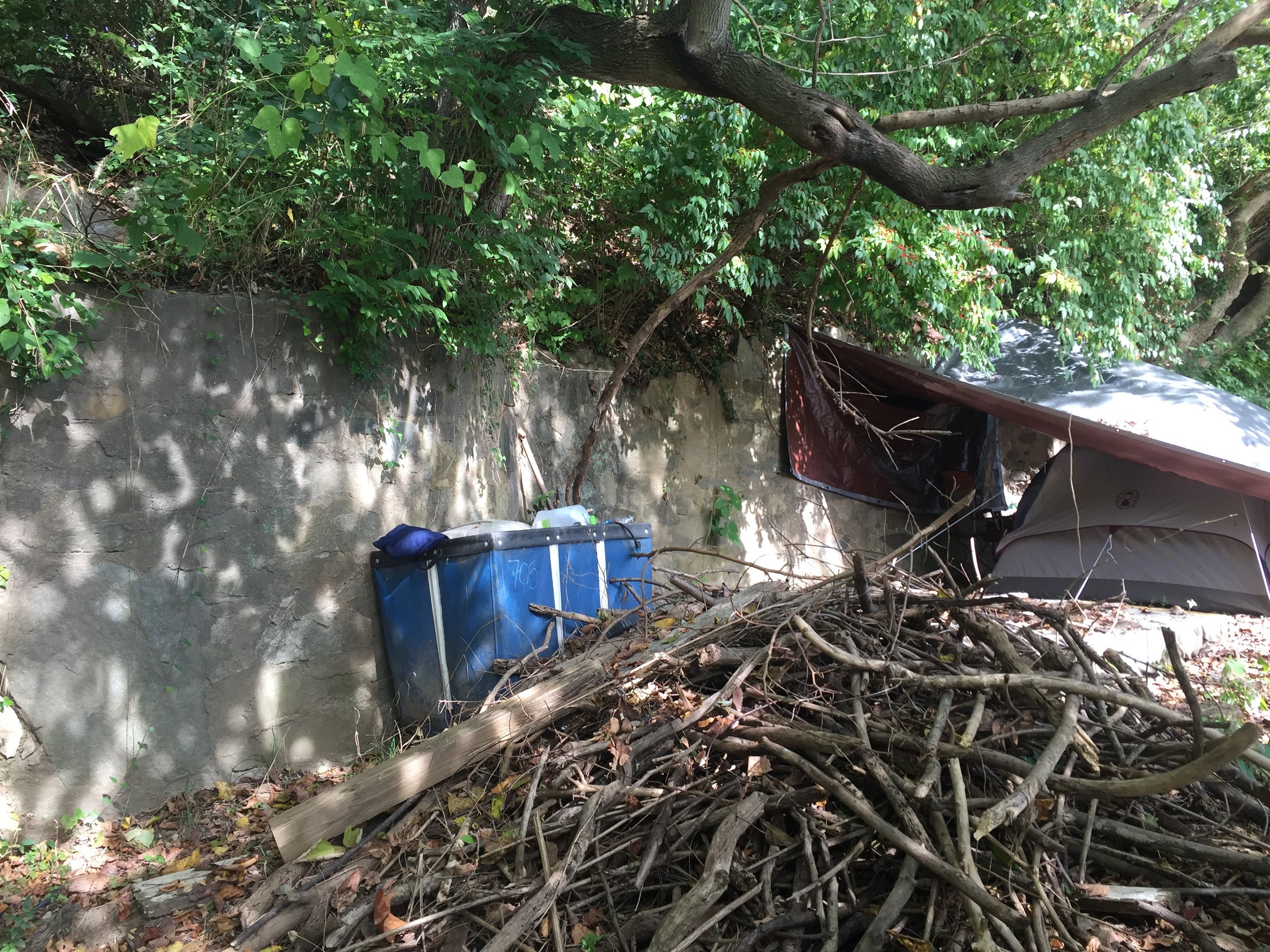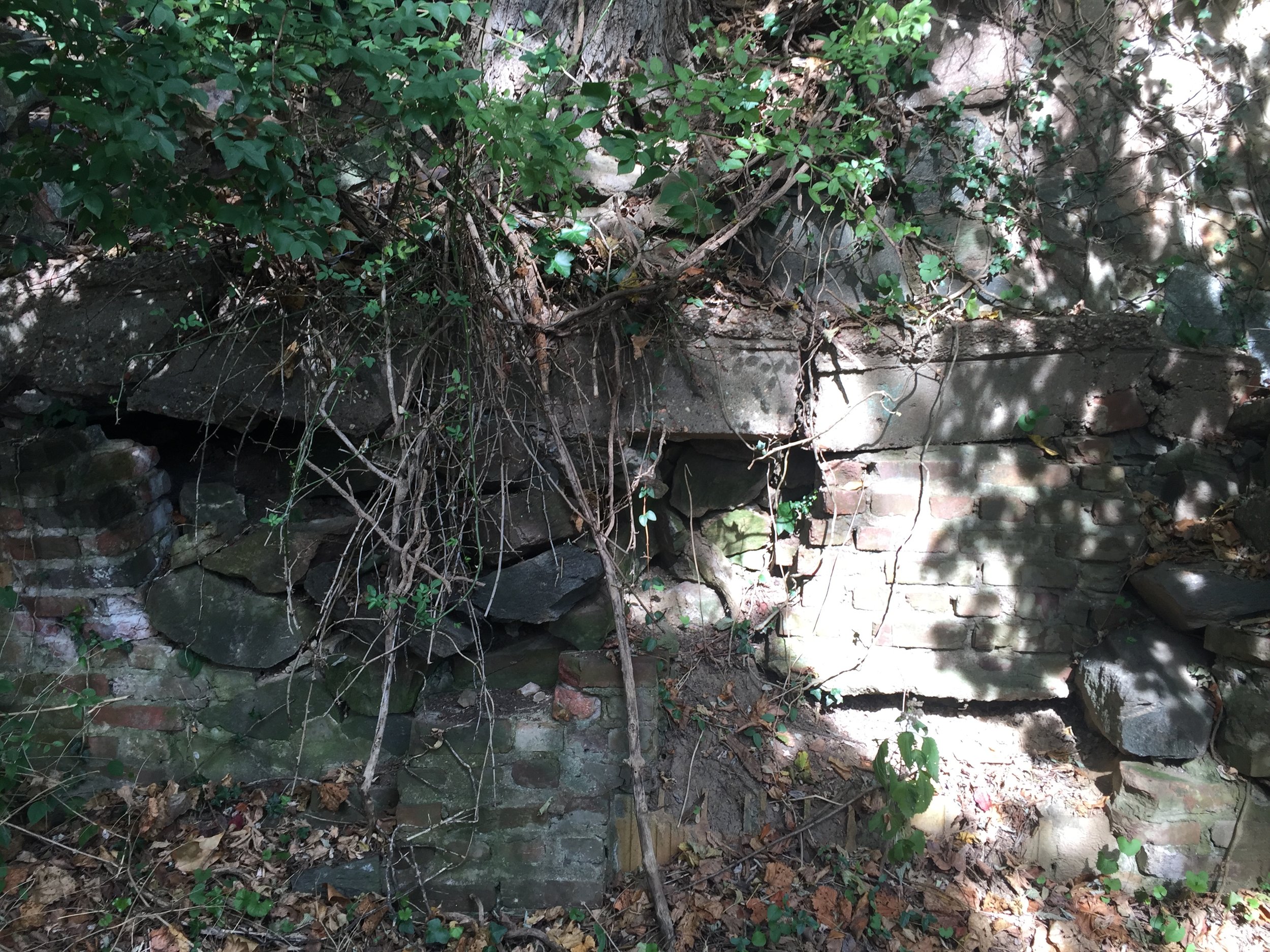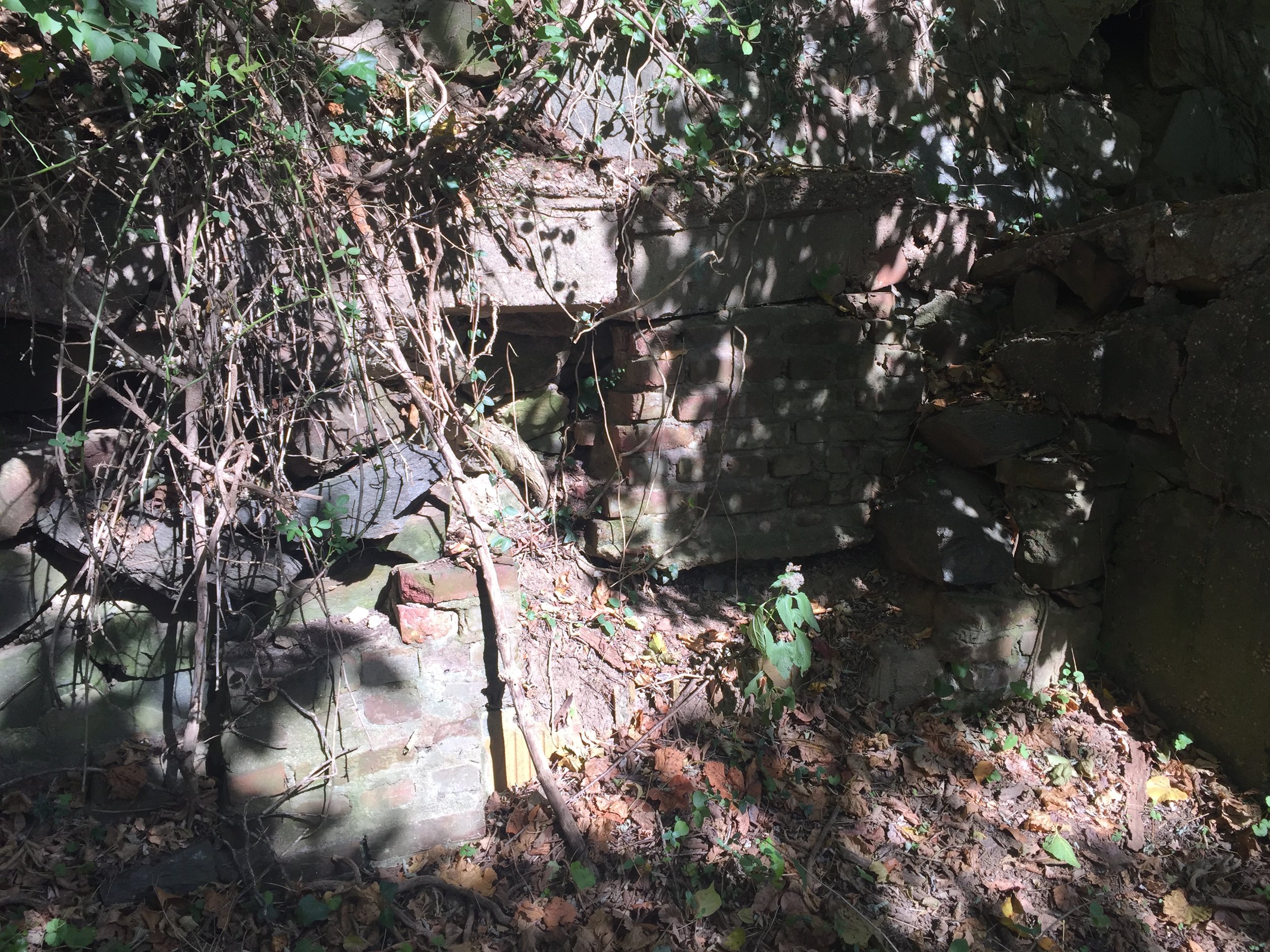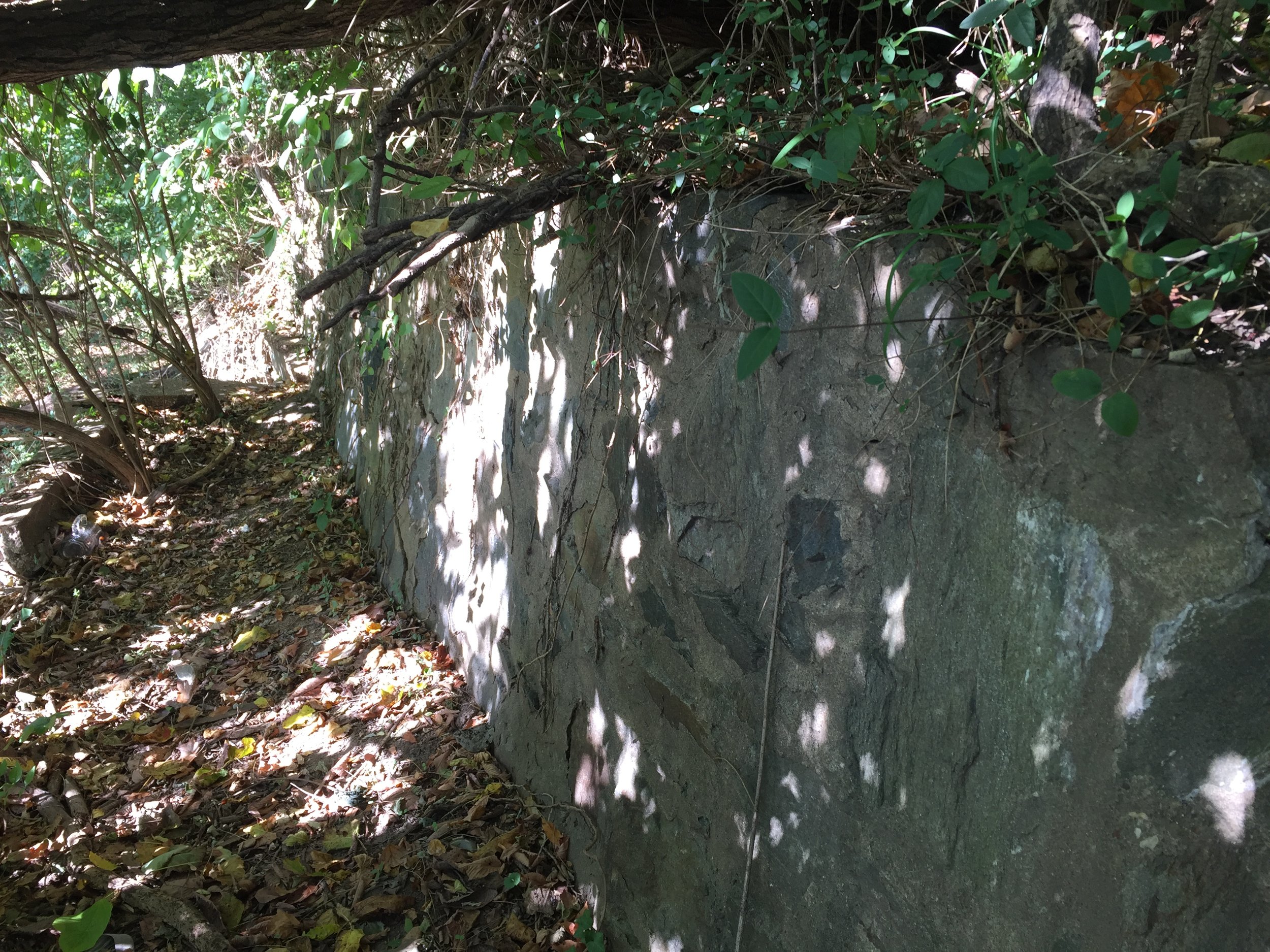Henry Foxall came to Washington in 1800 with an armload of defense contracts and established a munitions plant on the banks of the Potomac. He was here at the personal request of Thomas Jefferson, who felt that the federal city needed its own cannon foundry.
Plan of the Columbia Foundry. Library of Congress map
Foxall was a skilled arms manufacturer who brought the latest cannon boring techniques over from England. For decades his Columbia Foundry in Washington was the nation’s largest and most sophisticated cannon producer, supplying more than ten thousand guns to the Army and Navy.
The Columbia Foundry occupied several buildings on the Potomac riverbank opposite the Three Sisters Islands. The location was ideal - pig iron arrived via the Potomac (later the C&O Canal), labor came from Georgetown, and water power came from the nearby Mill Creek (now referred to as Foundry Branch). Finished products were exported through the nearby Port of Georgetown.
The Columbia Foundry enjoyed a virtual monopoly until the other three so-called “Great Foundries” were established in Richmond, Pittsburg, and West Point. From 1801 to about 1809 Columbia received almost every federal contract for cannon and ordinance. At its peak capacity, the munitions plant was capable of producing about 300 heavy guns and 30,000 cannon balls per year.
The Columbia Foundry was nearly destroyed in 1814 when British redcoats burned the Capitol. The detachment of soldiers marching on Foxall’s cannon works turned back in the face of a massive thunderstorm. Foxall built Foundry United Methodist Church out of gratitude for this divine intervention.
Columbia Foundry in winter. Washington Historical Society photo
The next year Henry sold the Columbia Foundry to prominent Washingtonian John Mason and retired from the arms business a wealthy man. He later went on to serve two terms as the Mayor of Georgetown and become a preacher.
The Columbia Foundry thrived in the 1820’s on cannon contracts for fortresses in the Louisiana Purchase and military campaigns against the Native Americans. However, John Mason lacked Foxall’s understanding of the cannon craft and failed to invest in new technology over the coming decade.
The Columbia Foundry was still producing smoothbore iron cannons in the 1830’s as its competitors turned out newer rifled bronze designs. The Washington Historical Society notes that by 1845 “the Columbia Foundry was reduced to making little other than shells and cannon balls to be fired from the guns made at other foundries.”
Arms output stopped altogether after Mason’s death in 1849. The Columbia Foundry buildings were auctioned off to a series of businesses including a flour mill, a brewery, and an ice storage warehouse.
The dilapidated buildings were torn down long ago but you can still find ruined foundations in the overgrowth at the site below the C&O canal.
Related: The Guns of Fort Washington





